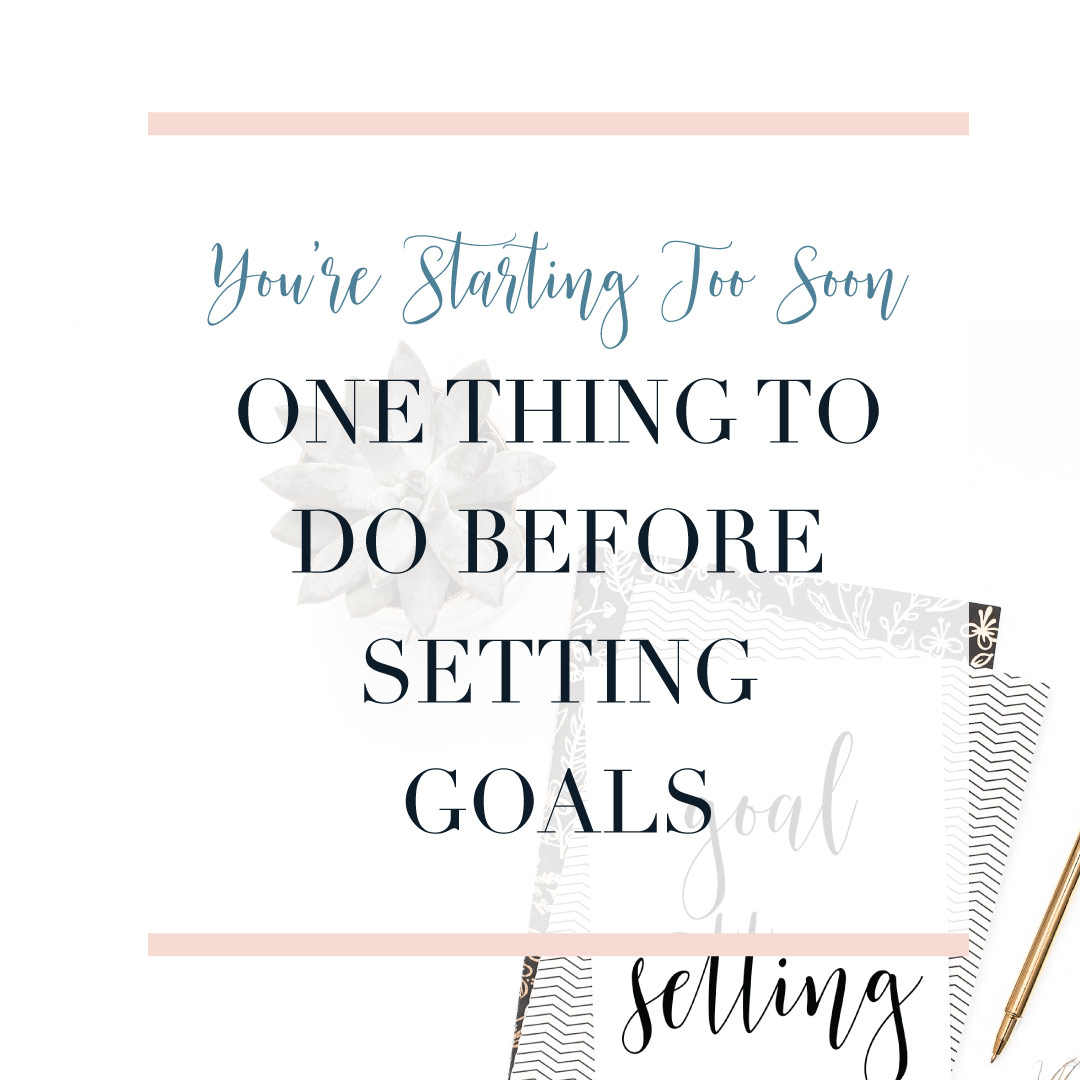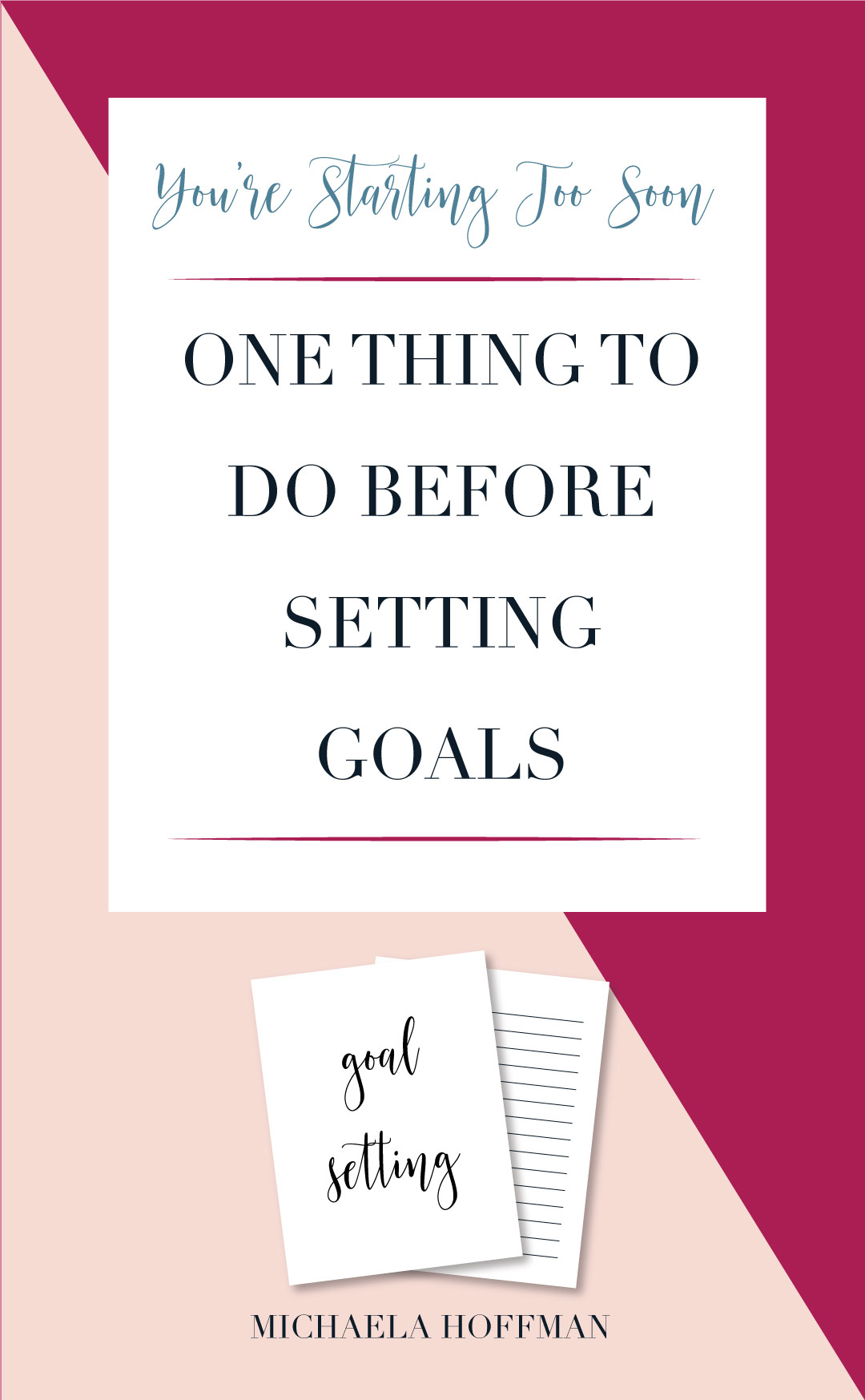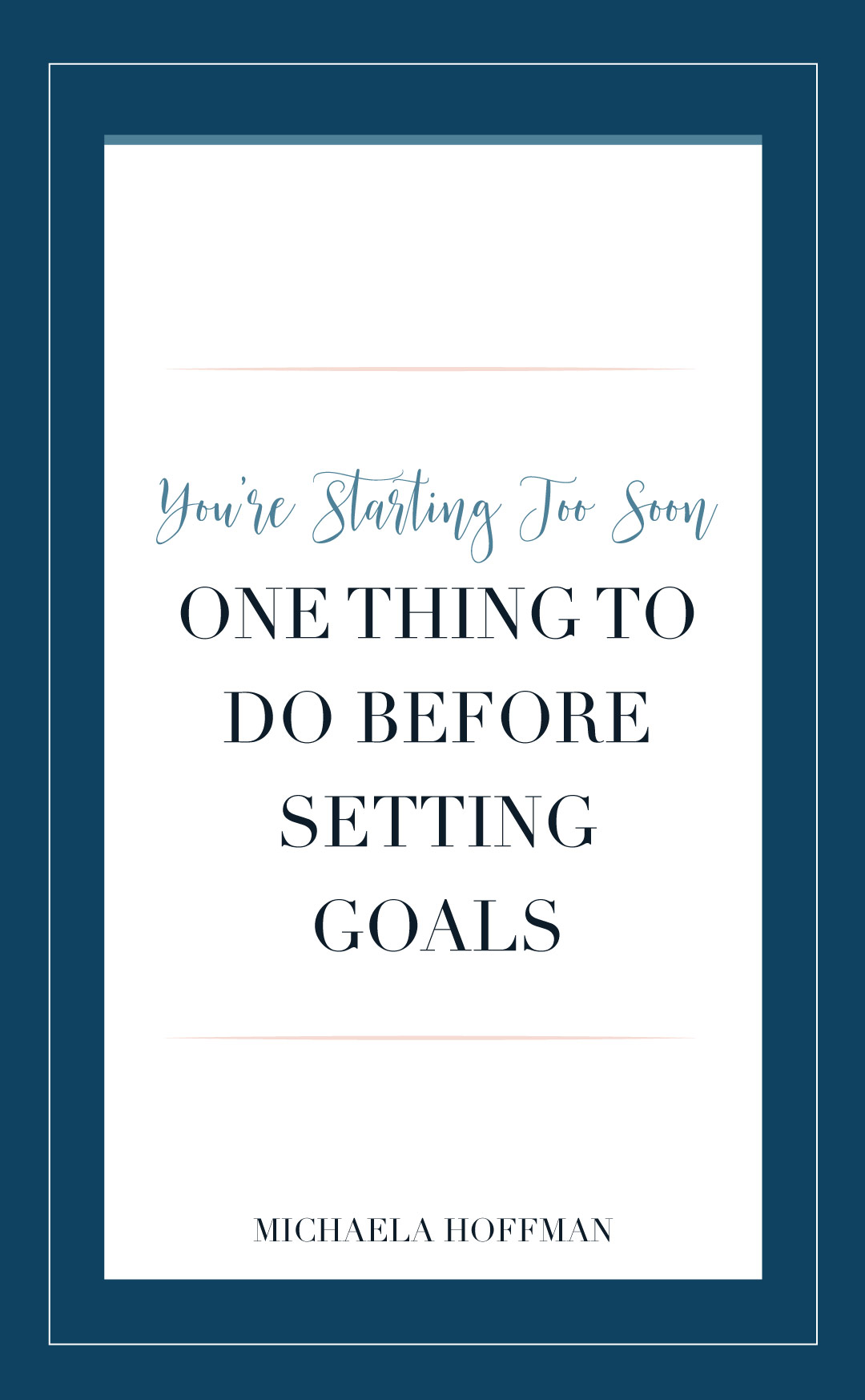
We all have things we want to do, traits and qualities we want to strengthen, and hopes for the future of our businesses. So naturally, setting a SMART goal or taking action right away seems like the best thing to do. Actually, it might be better to do one other thing first.
Goal setting can be a great way to motivate yourself toward the improved life and business you want, but if not done well, it leads to frustration and discouragement.
This happens because we often forget to assess our current situation, to see if we’re ready and able to commit to a new goal.
Why does assessing the current situation matter, if it’s the situation we want to change?
If you’re not ready or willing to put in the work, or are otherwise unable to commit to doing it at this time, change won’t happen.
Entrepreneurs and business owners are really good starters. We have great ideas (and usually many of them!), big dreams, lots of enthusiasm, and plenty of energy to get it all going. This make it easy to rush into setting goals without much assessment. However, if we want to be successful, it’s better to invest a little time now to figure out if the goal is a good fit, instead of wasting more time later because we chased the wrong goal.
How can we assess the fit of a goal without actually having a goal?
It’s more about the big picture at this point. You already know you want more than what you currently have, whether it’s more clients, better time management, spending less on marketing, feeling more confident, etc. So for now, we’ll use whatever that broad goal is, and save the clarification process until you figure out whether it’s actually the right time to start on this path.
If we forget to assess, we risk choosing goals we don’t really want, or that are too big or unrealistic for us to achieve at the moment. It might not be obvious at first, but we’ve all had goals where we realize partway through that we’ve lost our enthusiasm, we experience excruciatingly slower and slower progress, and eventually we’re faced with giving up (which makes us feel guilty or discouraged) or slogging through a goal that’s lost all meaning.
It really doesn’t have to be this way. Here are some questions to figure out if you’re ready and willing to start a new goal, project, or change.
(As a note, if you find the questions difficult to answer, consider discussing with someone else to get extra insight. Many times, other people have more distance from a situation and can give valuable perspective.)
6 Questions to Ask Yourself Before Setting Goals
Is this a problem that can be changed, and is it in your control to change it?
Again, focus on the big picture. Is this something that you can change, or is it a problem that’s out of your sphere of influence? If it’s something that requires other people’s help, then also ask yourself whether it’s in your power to influence them to get involved.
What are your reasons for this goal, or why do you want to make this change?
For a great TED talk on this topic, check out Simon Sinek’s “How Great Leaders Inspire Action” video (his “Start With Why” speech). Having a strong “Why” becomes especially critical when progress is challenging and you need to stay motivated. For some goals, “Because I want to” is good enough, but for most business goals, there’s probably a more specific reason.
If you’re having trouble thinking of a strong enough “Why,” ask yourself: “What do I think my life and business will look like when I accomplish this goal?”
When you come up with that answer, follow it with an additional repeating question: “Why is this appealing to me?” Ask this “why?” question again and again until you find your core reason.
What are some reasons not to make this change or start this project?
Just like every cloud has a silver lining, there are some pieces of silver with imperfections. Whether it’s that a change in procedure will mean more work during the transition, or that you’ll have to face a fear you’ve been avoiding, there’s probably some drawback (however temporary) to pursuing this goal.
If you’re having trouble with this question, ask yourself why you haven’t started this goal before now. It could be that staying in the predictable “known,” no matter how undesirable it is, is easier and more comfortable than changing.
Are the benefits of changing greater than the benefits of staying the same? And if not, is there an alternate change you need to consider?
When you consider the pros and cons of this goal, along with your core “Why,” do the pros outweigh the cons?
If not, don’t give up on your goal altogether. There’s obviously some tension between where you want to be and where you are now. That discontentment is still a sign that things need to change, but maybe in a different way. Think about what it is about your current situation that you don’t like, asking yourself a similar repeating “why” question as above: “Why don’t I like this situation?” and ask over and over until you get to the core negative why. Then pick a new goal focused on that core issue.
On the other hand, if the pros outweigh the cons, on a scale of 0-10, how willing are you to do the work to achieve this goal and change your situation? Once you’ve picked a number, think about why you picked it. If it’s low, what would help you feel more willing and ready to do the work? If it’s high, are there things on the horizon that might affect your commitment, and what can you do now to ensure progress?
What do you think might happen if you don’t do this goal?
Naming any fears or hesitations you have now can prevent them from coming up unexpectedly later. When you identify those fears (usually related to the “Why” answers, both of reasons you want to change and why you don’t), you can make plans to lessen those fears and get the support you’ll need.
Is this the right/wisest time to do this project or make this change? Do you have the time to dedicate to this goal?
If you’re already swamped and overwhelmed, and you’re considering adding another project, the answer may be no. Take it from a chronic over-committer: no matter how excited you are about this, there is such thing as good idea, bad timing.
On the other hand, if you think you can rearrange your schedule to free up enough time to see this through from beginning to end, the timing’s probably pretty good.
Remember, while sometimes are better than others, there’s no magic moment. You’ll never be 100% sure, but if you’ve assessed your situation and hesitations, if you’re convinced the benefits of changing outweigh the benefits of staying where you are, and if you’re actually ready to commit and start the goal in the next 30 days, then it’s time to clarify your goal and take action!
[testimonial_single id=”2902″]






This is a great blog post! I love the questions as they force you to dive deeper into your goal. Surface level reasons for a goal aren’t impactful enough which is why exploring things further is the key to setting and meeting your goals.
Very true, having that deeper understanding can be really motivating!